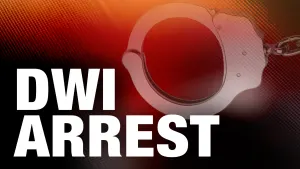Nassau, Suffolk police commissioners: Outreach to minority communities always a priority
As protests continue into their second week in response to the death of George Floyd, what's being done on Long Island to mend the relationship between police and minority communities?
•
Jun 3, 2020, 7:34 PM
•
Updated 1,823 days ago
Share:
As protests continue into their second week in response to the death of George Floyd, what's being done on Long Island to mend the relationship between police and minority communities?
In Nassau, Police Commissioner Patrick Ryder says outreach in minority communities has always been a priority, and says it's even more important now.
Ryder says since coming into office, he's increased the number of community affairs and precinct outreach officers, as well as police who work with kids in the Police Athletic League. There are about 50,000 children enrolled with PAL currently.
Ryder says these men and women often work closely with the communities they patrol.
"We need the bike police officers out there who work as a tactical tool for us in a crowd, but also work as a community relations piece, a group that can get out and speak to our community members," says Ryder. "They see that, they get friendly to the officers, they talk to them. It's a way to open up a dialogue."
He adds that face-to-face contact is a major part of gaining that trust. Officers reached out to residents at a shopping center in Roosevelt Wednesday.
Moving forward, police officials say they're looking to strengthen those relationships with communities through Nassau, and will protect protesters' rights to peacefully demonstrate.
Elaine Gross with the group Erase Racism says she's encouraged that some police officers are connecting with the community, but adds that much more has to be done.
"I would be equally interested in understanding what kinds of proactive things they're doing to deal with the culture in the police department, to try to have officers that are very aware of how structural racism has played a role in the way policing has happened in this country," says Gross.
In Suffolk, Commissioner Geraldine Hart says she meets with community members weekly. She says those relationships help keep protests peaceful.
"If you're going to effectively police, you have to do it with your communities," she says. "You have to do it side by side."
In Nassau, new recruits undergo 16 hours of diversity training, while Suffolk officers receive a full day of implicit bias training.
More from News 12
0:22

Police: Drunk driver crashes into tree in Southampton
2:23

Temperatures are about to soar on Long Island
0:49

Gov. Hochul announces new appointments to board overseeing Nassau University Medical Center
1:56

Residents demand solution to yearlong dispute over Stony Brook road, Grist Mill Pond repairs
1:54

New soccer club comprised of Long Island natives plays charity game in its inaugural month
1:19
